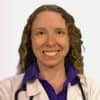Top 10 Foods to Reduce Cancer Risk (And What Foods To Avoid)
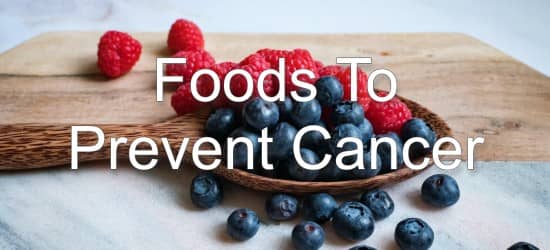
The World Health Organisation (WHO) estimates that approximately a third of deaths from cancer are related to lifestyle factors including smoking, alcohol, being overweight, low fruit and vegetable intake, and lack of physical activity (1).
In addition to avoiding smoking, over-consumption of alcohol, and a sedentary lifestyle, following a healthy diet is important for cancer prevention.
In the first instance, a healthy diet is important for maintaining a healthy weight. Being overweight increases the risk of 13 specific types of cancer and overall cancer risk (2,3).
Secondly, a healthy diet can provide some protection against cancer via the health-promoting effects of certain foods and nutrients. An unhealthy diet, on the other hand, contains elements that increase the chances of developing cancer.
When it comes to cancer prevention, there are no guarantees, but experts agree that the overall dietary pattern is fundamental and more important than individual foods. A healthy diet is one based predominantly on plant foods, with plenty of fruits, vegetables, whole grains, pulses, nuts, and seeds. Fish and moderate amounts of dairy products and poultry may also be included. Processed foods, processed meat in particular, red meat, added sugars, unhealthy fats (trans and saturated), and alcohol should be minimized (4).
Adequate fiber consumption, in particular, is associated with reduced cancer risk (5). As fiber comes from plants, a diet based principally on whole plant foods will naturally meet the requirements for fiber.
In addition, there are some specific foods and food groups that provide nutrients or plant substances, known as phytochemicals, that have been shown to have protective effects. It must be noted that these possible benefits are only present when these foods are included in the context of a healthy diet, as described. There are also certain foods linked with an increased risk of cancer, which should be avoided or minimized.
The following article summarises both beneficial and harmful foods and overall dietary and lifestyle advice for cancer prevention.
Disclaimer: None of the advice in this article is intended to be a substitute for medical treatment or advice. Nor can it cure, treat, or prevent cancer. Please always consult a Health Professional before making any changes to your diet, especially if you are undergoing treatment for cancer or any other medical condition.
List of Foods to Reduce Cancer Risk

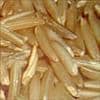


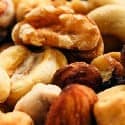


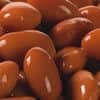


Foods to Avoid to Help Prevent Cancer
- Processed and red meats increase the risk of developing bowel cancer and possibly stomach and pancreatic cancers (42,43). The risk is especially high for processed meats which should be avoided or eaten only very occasionally (salami, ham, bacon, sausages, chicken nuggets, luncheon meats etc.). Red meat includes lamb, mutton, beef, and pork and should be eaten no more than 1-2 times per week, but can also be limited further or avoided.
- Alcohol is related to 7 different types of cancer including cancers of the mouth, throat, voice box, liver, colon, and breast. It is estimated that 4% of total worldwide cancer cases are caused by alcohol (44,45). Abstinence or very moderate drinking is advisable, especially for people with a family history of any of the above cancers.
- Ultra-Processed Foods (UPF) - a 10% increase in the proportion of UPF eaten in the diet is linked with an increase in cancer risk of 10% or more (46). These foods are also linked with obesity and most other major health issues, so should be kept to a minimum or avoided.
- High sugar and fat foods promote inflammation in the body, which is involved in cancer development and progression.
Tips to Reduce Cancer Risk
- Maintain a healthy weight - being overweight is the second highest cause of cancer in the UK. Maintaining a healthy weight reduces the risk of 13 different types of cancer (47).
- Vegetarian and vegan diets may be protective against cancer. Being vegetarian reduces risk by approximately 8% and being vegan by 15% according to one study (48,49,50). This is especially true if processed foods are avoided.
- Physical activity protects against cancers of the colon, breast, and endometrium and helps prevent weight gain (51,52).
- Dairy Products - there is evidence that regular consumption of dairy can reduce the risk of bowel cancer (53,54). Fermented dairy has been associated with a reduced risk of cancer (55). Yogurt consumption is linked with a reduced risk of bladder and colorectal cancers (55). There is also however some evidence that consumption of dairy and a high-calcium diet is linked with an increased risk of prostate cancer (56). As the evidence is inconclusive, it is advisable (for non-vegans) to consume high-quality dairy, in small to moderate quantities with a focus on organic, grass-fed fermented dairy, such as yogurt, kefir, and artisan cheeses.
Related
Data Sources and References
- World Health Organization on Cancer
- Argyrakopoulou G, Dalamaga M, Spyrou N, Kokkinos A. Obesity and cancer risk: Emerging biological mechanisms and perspectives Curr Obes Rep. 2021 Jun;10(2):100-115. doi: 10.1007/s13679-021-00426-0. Epub 2021 Feb 1. 33523397
- Nimptsch K, Pischon T. Obesity as a major risk factor for cancer Recent Results Cancer Res. 2016;208:199-217. doi: 10.1007/978-3-319-42542-9_11. 27909909
- Gonzales JF, Barnard ND, Jenkins DJ, Lanou AJ, Davis B, Saxe G, Levin S. Nutrition and cancer: prevention and survival J Am Coll Nutr. 2014;33(3):239-46. doi: 10.1080/07315724.2013.866527. Epub 2014 May 28. 24870117
- Hajishafiee M, Saneei P, Benisi-Kohansal S, Esmaillzadeh A. Dietary fibre intake and mortality from cardiovascular disease and all cancers: A meta-analysis of prospective cohort studies Br J Nutr. 2016 Jul;116(2):343-52. doi: 10.1017/S0007114516001938. Epub 2016 May 19. 27193606
- Miller V, Mente A, Dehghan M, Rangarajan S, Zhang X, Swaminathan S, Dagenais G, Gupta R, Mohan V, Lear S, Bangdiwala SI, Schutte AE, Wentzel-Viljoen E, Avezum A, Altuntas Y, Yusoff K, Ismail N, Peer N, Chifamba J, Diaz R, Rahman O, Mohammadifard N, Lana F, Zatonska K, Wielgosz A, Yusufali A, Iqbal R, Lopez-Jaramillo P, Khatib R, Rosengren A, Kutty VR, Li W, Liu J, Liu X, Yin L, Teo K, Anand S, Yusuf S; Prospective Urban Rural Epidemiology (PURE) study investigators. Fruit and vegetable intake and the risk of cardiovascular disease, total cancer and all-cause mortality-a systematic review and dose-response meta-analysis of prospective studies Lancet. 2017 Nov 4;390(10107):2037-2049. doi: 10.1016/S0140-6736(17)32253-5. Epub 2017 Aug 29. 28864331
- Gaesser GA. Whole Grains, Refined Grains, and Cancer Risk: A Systematic Review of Meta-Analyses of Observational Studies Adv Nutr. 2019 May 1;10(3):361-371. doi: 10.1093/advances/nmy104. 30947337
- Tjønneland A, Olsen A. Dietary fibre, whole grains, and risk of colorectal cancer: systematic review and dose-response meta-analysis of prospective studies BMJ. 2011 Nov 10;343:d6938. doi: 10.1136/bmj.d6938. 22074854
- Wirth A. Whole grain consumption and risk of cardiovascular disease, cancer, and all cause and cause specific mortality: systematic review and dose-response meta-analysis of prospective studies MMW Fortschr Med. 2017 May;159(8):40. doi: 10.1007/s15006-017-9571-z. 28466323
- Bo Y, Sun J, Wang M, Ding J, Lu Q, Yuan L. Association of whole grains intake and the risk of digestive tract cancer: a systematic review and meta-analysis Sci Rep. 2016 Apr 26;6:24836. doi: 10.1038/srep24836. 27112267
- Johnson IT. The beneficial effects of Brassica vegetables on human health Proc Nutr Soc. 2007 May;66(2):207-15. doi: 10.1017/S0029665107005459. 17466103
- Verhoeven DT, Goldbohm RA, van Poppel G, Verhagen H, van den Brandt PA. Brassica vegetables and cancer prevention. Epidemiology and mechanisms Cancer Epidemiol Biomarkers Prev. 1996 Sep;5(9):733-48. 8877066
- van Poppel G, Verhoeven DT, Verhagen H, Goldbohm RA. Epidemiological studies on brassica vegetables and cancer risk Adv Exp Med Biol. 1999;472:159-68. doi: 10.1007/978-1-4757-3230-6_14. 10736624
- Bauman JE, Zang Y, Sen M, Li C, Wang L, Egner PA, Fahey JW, Normolle DP, Grandis JR, Kensler TW, Johnson DE. Nrf2 targeting by sulforaphane: A potential therapy for cancer treatment Cancer Prev Res (Phila). 2016 Jul;9(7):547-57. doi: 10.1158/1940-6207.CAPR-15-0290. Epub 2016 Jun 23. 27339168
- Vanduchova A, Anzenbacher P, Anzenbacherova E. Broccoli or Sulforaphane: Is It the Source or Dose That Matters? J Med Food. 2019 Feb;22(2):121-126. doi: 10.1089/jmf.2018.0024. Epub 2018 Oct 27. 30372361
- Yuanfeng W, Chengzhi L, Ligen Z, Juan S, Xinjie S, Yao Z, Jianwei M. Isothiocyanate from Broccoli, Sulforaphane, and Its Properties Food Chem. 2021 May 30;345:128771. doi: 10.1016/j.foodchem.2020.128771. Epub 2020 Dec 3. 33601652
- Geier MS, Butler RN, Howarth GS. Probiotics, prebiotics and colorectal cancer prevention Cancer Biol Ther. 2006 Oct;5(10):1265-9. doi: 10.4161/cbt.5.10.3296. Epub 2006 Oct 19. 16969130
- Uccello M, Malaguarnera G, Basile F, D'agata V, Malaguarnera M, Bertino G, Vacante M, Drago F, Biondi A. Importance of probiotics in the prevention and treatment of colorectal cancer BMC Surg. 2012;12 Suppl 1(Suppl 1):S35. doi: 10.1186/1471-2482-12-S1-S35. Epub 2012 Nov 15. 23173670
- Yu AQ, Li L. Probiotics for cancer alternative prevention and treatment Nutr Cancer. 2016 May-Jun;68(4):535-44. doi: 10.1080/01635581.2016.1158300. Epub 2016 May 4. 27144297
- Gao G, Ma T, Zhang T, Jin H, Li Y, Kwok LY, Zhang H, Sun Z. Effect of probiotics and gut microbiota on anti-cancer drugs: Mechanistic perspectives Front Immunol. 2021 Dec 14;12:772532. doi: 10.3389/fimmu.2021.772532. eCollection 2021. 34970262
- Dos Reis SA, da Conceição LL, Siqueira NP, Rosa DD, da Silva LL, Peluzio MD. Potential Mechanisms of Probiotics Action in the Prevention and Treatment of Colorectal Cancer Nutr Res. 2017 Jan;37:1-19. doi: 10.1016/j.nutres.2016.11.009. Epub 2016 Nov 23. 28215310
- Brash DE, Havre PA. Selenomethionine regulation of p53 by a ref1-dependent redox mechanism Proc Natl Acad Sci U S A. 2002 Oct 29;99(22):13969-71. doi: 10.1073/pnas.232574399. Epub 2002 Oct 21. 12391310
- Kong Z, Xia Z. Selenium and human health Lancet. 2012 Aug 4;380(9840):471; author reply 471-2. doi: 10.1016/S0140-6736(12)61287-2. 22863048
- Vinceti M, Filippini T, Wise LA. The Epidemiology of Selenium and Human Cancer Curr Environ Health Rep. 2018 Dec;5(4):464-485. doi: 10.1007/s40572-018-0213-0. 30280317
- Turati F, Pelucchi C, Guercio V, La Vecchia C, Galeone C. Consumption of large amounts of Allium vegetables reduces risk for gastric cancer in a meta-analysis Mol Nutr Food Res. 2015 Jan;59(1):171-9. doi: 10.1002/mnfr.201400496. Epub 2014 Oct 8. 25215621
- Zhang J, Yang J. Allium vegetable intake and gastric cancer: a case-control study and meta-analysis Iran J Public Health. 2022 Apr;51(4):746-757. doi: 10.18502/ijph.v51i4.9235. 35936519
- Turati F, Pelucchi C, Guercio V, La Vecchia C, Galeone C. Allium vegetables and stomach cancer risk in China Mol Nutr Food Res. 2015 Jan;59(1):171-9. doi: 10.1002/mnfr.201400496. Epub 2014 Oct 8. 25215621
- Bianchini F, Vainio H. Garlic and onions: their cancer prevention properties Environ Health Perspect. 2001 Sep;109(9):893-902. doi: 10.1289/ehp.01109893. 11673117
- Shakeri A, Ward N, Panahi Y, Sahebkar A. Curcumin and Cancer Curr Vasc Pharmacol. 2019;17(3):262-269. doi: 10.2174/1570161116666180209113014. 29424316
- Basnet P, Skalko-Basnet N. Curcumin targets in inflammation and cancer Molecules. 2011 Jun 3;16(6):4567-98. doi: 10.3390/molecules16064567. 21642934
- Deguchi A. Curcumin as an anti-inflammatory agent: Implications to radiotherapy and chemotherapy Endocr Metab Immune Disord Drug Targets. 2015;15(2):88-96. doi: 10.2174/1871530315666150316120458. 25772169
- Nachvak SM, Moradi S, Anjom-Shoae J, Rahmani J, Nasiri M, Maleki V, Sadeghi O. Intake of Soy, Soy Isoflavones and Soy Protein and Risk of Cancer Incidence and Mortality J Acad Nutr Diet. 2019 Sep;119(9):1483-1500.e17. doi: 10.1016/j.jand.2019.04.011. Epub 2019 Jul 2. 31278047
- Arias LD, Parra BE, Muñoz AM, Cárdenas DL, Duque TG, Manjarrés LM. Folate and Its Impact on Cancer Risk Birth Defects Res. 2017 May 1;109(8):564-573. doi: 10.1002/bdr2.1004. Epub 2017 Mar 15. 28398657
- Valachovicova T, Slivova V, Bergman H, Shuherk J, Sliva D. Soy and breast cancer: focus on angiogenesis Int J Oncol. 2004 Nov;25(5):1389-95. 15492830
- Messina M, McCaskill-Stevens W, Lampe JW. Soy and its isoflavones: the truth behind the science in breast cancer J Natl Cancer Inst. 2006 Sep 20;98(18):1275-84. doi: 10.1093/jnci/djj356. 16985246
- Lee SA, Shu XO, Li H, Yang G, Cai H, Wen W, Ji BT, Gao J, Gao YT, Zheng W. Soy intake and breast cancer risk: a prospective study of 300,000 Chinese women and a dose-response meta-analysis Am J Clin Nutr. 2009 Jun;89(6):1920-6. doi: 10.3945/ajcn.2008.27361. Epub 2009 Apr 29. 19403632
- Lee MM, Gomez SL, Chang JS, Wey M, Wang RT, Hsing AW. Soy Consumption and the Risk of Prostate Cancer: An Updated Systematic Review and Meta-Analysis Cancer Epidemiol Biomarkers Prev. 2003 Jul;12(7):665-8. 12869409
- Zhao TT, Jin F, Li JG, Xu YY, Dong HT, Liu Q, Xing P, Zhu GL, Xu H, Miao ZF. Soy, Soy Isoflavones, and Protein Intake in Relation to Mortality from All Causes, Cancers, and Cardiovascular Diseases: A Systematic Review and Dose-Response Meta-Analysis of Prospective Cohort Studies Clin Nutr. 2019 Feb;38(1):136-145. doi: 10.1016/j.clnu.2017.12.006. Epub 2017 Dec 15. 29277346
- Karas M, Amir H, Fishman D, Danilenko M, Segal S, Nahum A, Koifmann A, Giat Y, Levy J, Sharoni Y. Lycopene is a more potent inhibitor of human cancer cell proliferation than either alpha-carotene or beta-carotene Nutr Cancer. 2000;36(1):101-11. doi: 10.1207/S15327914NC3601_14. 10798222
- Zackheim HS. Tomatoes, tomato-based products, lycopene, and cancer: review of the epidemiologic literature J Natl Cancer Inst. 1999 Aug 4;91(15):1331. doi: 10.1093/jnci/91.15.1331. 10433624
- Cui K, Li X, Du Y, Tang X, Arai S, Geng Y, Xi Y, Xu H, Zhou Y, Ma W, Zhang T. Lycopene as a chemopreventive agent in the treatment of high-grade prostate intraepithelial neoplasia Oncotarget. 2017 May 30;8(22):36674-36684. doi: 10.18632/oncotarget.16230. 28415774
- Chan DS, Lau R, Aune D, Vieira R, Greenwood DC, Kampman E, Norat T. Meat, dairy, and cancer PLoS One. 2011;6(6):e20456. doi: 10.1371/journal.pone.0020456. Epub 2011 Jun 6. 21674008
- Alexander DD, Morimoto LM, Mink PJ, Cushing CA. Red and processed meat and colorectal cancer incidence: meta-analysis of prospective studies Nutr Res Rev. 2010 Dec;23(2):349-65. doi: 10.1017/S0954422410000235. 21110906
- Varela-Rey M, Woodhoo A, Martinez-Chantar ML, Mato JM, Lu SC. Alcohol and Cancer: Epidemiology and Biological Mechanisms Alcohol Res. 2013;35(1):25-35. 24313162
- Rumgay H, Murphy N, Ferrari P, Soerjomataram I. Alcohol, DNA methylation, and cancer Nutrients. 2021 Sep 11;13(9):3173. doi: 10.3390/nu13093173. 34579050
- Monge A, Lajous M. Consumption of ultra-processed foods and cancer risk: results from NutriNet-Santé prospective cohort BMJ. 2018 Feb 14;360:k599. doi: 10.1136/bmj.k599. 29444772
- Cancer Research UK: Does obesity cause cancer?
- Desmond MA, Sobiecki JG, Jaworski M, Płudowski P, Antoniewicz J, Shirley MK, Eaton S, Książyk J, Cortina-Borja M, De Stavola B, Fewtrell M, Wells JCK. Vegetarian, vegan diets and multiple health outcomes: A systematic review with meta-analysis of observational studies Am J Clin Nutr. 2021 Jun 1;113(6):1565-1577. doi: 10.1093/ajcn/nqaa445. 33740036
- Craig WJ. Health benefits and risk associated with adopting a vegetarian diet Nutr Clin Pract. 2010 Dec;25(6):613-20. doi: 10.1177/0884533610385707. 21139125
- Tonstad S, Stewart K, Oda K, Batech M, Herring RP, Fraser GE. Vegetarian diets and the incidence of cancer in a low-risk population Nutr Metab Cardiovasc Dis. 2013 Apr;23(4):292-9. doi: 10.1016/j.numecd.2011.07.004. Epub 2011 Oct 7. 21983060
- Sutcliffe P, Connock M, Gurung T, Freeman K, Johnson S, Kandala NB, Grove A, Gurung B, Morrow S, Clarke A. Physical Activity in Cancer Prevention and Survival: A Systematic Review Health Technol Assess. 2013 Sep;17(43):1-253. doi: 10.3310/hta17430. 24074752
- Monninkhof EM, Peeters PH, Schuit AJ. Cancer, physical activity, and exercise BMC Public Health. 2007 Sep 4;7:232. doi: 10.1186/1471-2458-7-232. 17767724
- [No authors listed] Association Between Dairy Product Consumption and Colorectal Cancer Risk in Adults: A Systematic Review and Meta-Analysis of Epidemiologic Studies Adv Nutr. 2020 Jul 1;11(4):1055-1057. doi: 10.1093/advances/nmaa071. 32666108
- Vieira AR, Abar L, Chan DSM, Vingeliene S, Polemiti E, Stevens C, Greenwood D, Norat T. Dairy products and colorectal cancer risk: a systematic review and meta-analysis of cohort studies Ann Oncol. 2017 Aug 1;28(8):1788-1802. doi: 10.1093/annonc/mdx171. 28407090
- Zhang K, Chen X, Zhang L, Deng Z. Fermented dairy foods intake and risk of cancer Crit Rev Food Sci Nutr. 2020;60(7):1189-1194. doi: 10.1080/10408398.2018.1564019. Epub 2019 Jan 17. 30652490
- Chan DS, Lau R, Aune D, Vieira R, Greenwood DC, Kampman E, Norat T. Meat, dairy, and cancer PLoS One. 2011;6(6):e20456. doi: 10.1371/journal.pone.0020456. Epub 2011 Jun 6. 21674008
Try the recipe nutrition calculator, or daily meal planner.
Create a free account to log and track foods.

